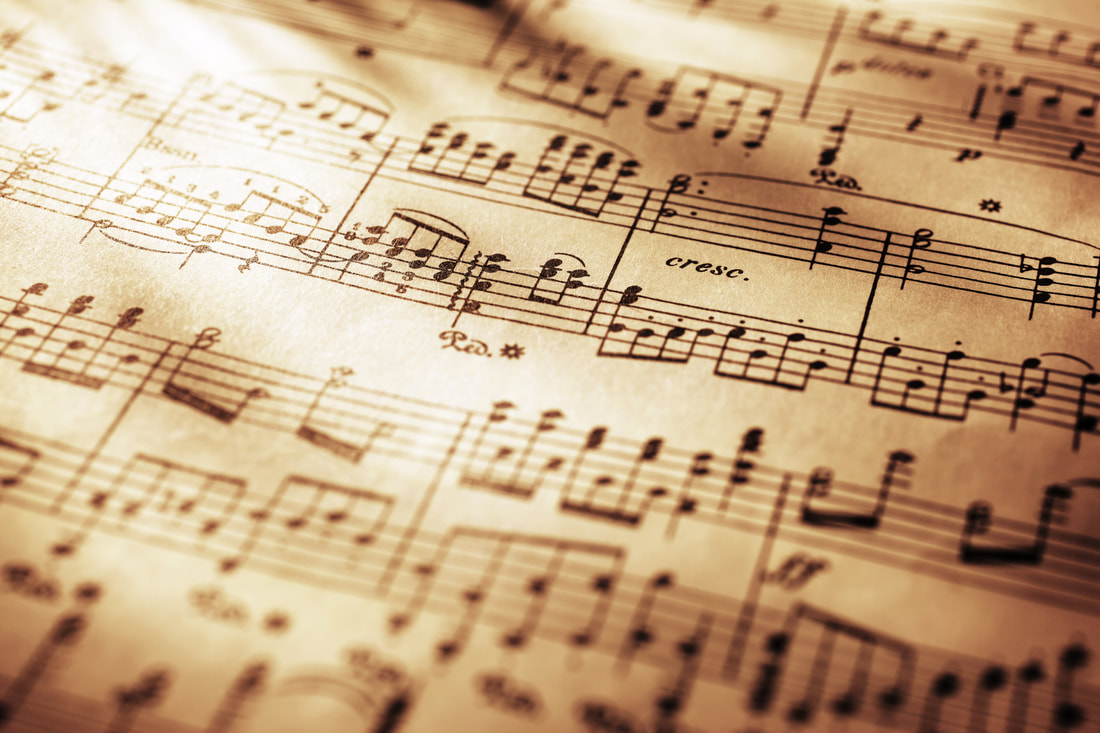|
“I don’t know what to listen for.”
“It’s not for me.” “I’m no expert.” There are many reasons for people’s dismissal of classical music. It can seem the most intimidating of all the art forms, taking place in stuffy concert halls with high-priced tickets and concertgoers quick to “shush” anyone not schooled in their ways. You’re not sure how to listen, or if you have the “right” knowledge to listen. You’re worried about doing something “wrong.” For many, though, classical music is one of the great joys of life. Skilled musicians passionate about the art form bring the pure beauty of music to life in a moment in space and time. In a world that is more hectic every day, the hush and dark of a concert hall can be a place to soothe the body and soul. After all, it’s one of the last remaining places where you’re actually asked to silence your phone. We think of music as an experience, a journey to be shared. And we’re devoted to sharing it with you, as well as new audiences in every venue and community we visit. In the spirit of sharing, we’re all about opening minds. This is why we’ve put together a list of some of the questions you’re burning to know the answer to but are maybe too afraid—or too polite—to ask. Is classical music really for everyone? We believe that the only requirement for listening to music of any genre is to have two working ears. That’s it. If you have ears, and they work (even with assistance of any kind), you can listen to classical music. Despite this, classical music audiences today seem to consist largely of people with some sort of formal background in music. The belief is that you must have studied an instrument or listened to many hours of recordings to “get it.” Nothing could be further from the truth. You already get it—you just don’t realize that you do. In fact, nothing more is required of you than an open mind and a willingness to try something new. Most people don’t think twice about buying a ticket to a movie they’ve never seen or trying a new restaurant. Bring the same open-minded curiosity to our concert and you’ll be surprised. What if I don’t like it? There is always the risk that you won’t like something you’re trying for the first time—whether we’re talking about movies, restaurants, or classical music. This shouldn’t stop you from trying it. Some classical music is full of melody and harmony; said another way, it’s singable. Some of it is less easy to follow. Some of it is jazzy. We know not every piece is for every listener, which is why we work hard to put together concerts that have a lot of variety in a single program. We like to say we perform “wickedly great” music, so there’s something for everyone. If you don’t like it, that’s ok. You can say so. Art, after all, is in the eye of the beholder. Again, all we ask is that you bring an open mind. How should I listen at a concert? Some pieces are “about” something; they have a theme, or they are inspired by a story. Some don’t. Either way, we the artists and you the listeners each bring our own experiences and selves into the music. This creates something altogether new each time. As musicians, we each have a new experience of the music with every performance—we don’t know quite what to expect. Bring this same openness. Close your eyes if you like. Watch our movements and communication. Read the program. Hold the hand of the person who came with you. Let go of the stress you came in with and simply be in the moment with us. Does a live audience really matter? Yes! You do! Music is art created in a moment in space and time. As musicians, Paul and I are deeply honored by your presence in our concert hall. This tells us that you’ve decided to trust us to guide you on a journey of sorts. It’s a big responsibility. For the most part, you don’t know where this journey may lead. You may not even understand why you suddenly find yourself embarking on such a journey. It’s our mission to join with you as together we transcend the mundane. The starting point of the journey is the music the composer has written to try to capture something about our human experience that simply cannot be communicated in words. You are part of the magic we’re creating. (This is especially true after the recent lack of live performances). When should I clap (and how will I know it’s time?) Audiences familiar with classical music know that there is an expected time to clap, and times when clapping isn’t expected. Go to any jazz or rock concert, though, and you see a much freer attitude toward clapping. Clapping is a form of spontaneous appreciation for the artists and the music. We welcome it. We do ask that during very quiet and delicate passages in the music, you refrain from applause. Not sure when to clap? Watch the other audience members and follow their lead. Not sure we’re done with the piece? Watch for us to lower our instruments and acknowledge the audience with our eyes and bodies. Why do classical musicians dress up? Simply put, it’s a form of respect—for you and for the music itself. Orchestral musicians have traditionally worn black to look like an ensemble—a cohesive group. As a chamber music duo, we have more creative latitude (for ladies, that means sequins and sparkles). It’s also fun to dress up, especially after the last 18 months we’ve been through. Why don’t we see more diversity in classical music? The national conversation on diversity, equity, and inclusion is important to the arts as well as to the rest of our society. There is no easy or short answer to this question, but there are some themes that are relevant. A major one is access—to the arts, to training, and even access to the resources necessary to study classical music. Consider that renting or purchasing an instrument can be a financial barrier for many families. Audience development and diversity is central to Duo Sequenza; we see part of our mission as bringing new listeners to classical music, and this includes a diversity of listeners. Do you ever get nervous? In short, yes! Nerves are the body’s response to new or intimidating situations. Nerves also mean that something matters—in this case, the performance for you. After a lifetime in classical music performance, though, we’ve learned to use nerves in positive ways. Nerves can enhance our focus on making music in a moment in time and on our connection with the audience. Do you ever make mistakes? Yes again! Many of our pieces are musically and technically demanding, which means they require fast fingers or long periods without taking a big breath. They’re not easy to play. This is where hours of practice come in, though. As we practice, we’re learning the note patterns and fingerings we need to bring the music to life from printed marks on the page. We’re putting it together like pieces of a puzzle. Yes, there can be times when we make a mistake, like when we miss a note or don’t end exactly the way we rehearsed—but it’s probably more apparent to us than it is to you. Musicians are humans, after all, and humans are imperfect. How do you make a living as a musician? Many of today’s classical musicians are entrepreneurs and small business owners. We play concerts in small groups, as soloists, and with orchestras. We teach students, sometimes at the university level and sometimes privately. We make recordings, which are sold on CDs and streamed via streaming services. Now that you know a bit more about classical music—and us—we hope to see you at a performance soon.
3 Comments
|
AuthorWrite something about yourself. No need to be fancy, just an overview. Archives
March 2022
Categories |


 RSS Feed
RSS Feed





